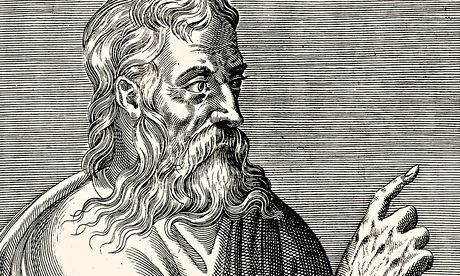
Should philosophers practise what they preach? The question is unavoidable when it comes to Seneca. Here is a man who said “being poor is not having too little but wanting more” while pocketing 300 million sestertii writing speeches for the monstrous Nero. Here is a man who said the wealthy should be generous with their money, while using his own sordid gains to become richer still as a landlord and lender. (Some historians believe the Boudican revolt was prompted by Seneca’s calling in the extortionately rated loans he had forced on subject Britons.)
Worse, as Emily Wilson’s Seneca: A Life makes clear, pretty much every one of Seneca’s works can be read as an explanation or an excuse for whatever he or Nero had been up to in the weeks preceding its composition. On Clemency, a paean to Nero’s non-violent nature, appeared mere months after the emperor had had his stepbrother murdered. On Leisure was composed just as Seneca was trying to sweet-talk Nero into letting him retire from an increasingly perilous court.
But even though Nero had just had his own mother offed, did Seneca (who had conspired in the murder) have any right to be fearful? After all, the founding principle of Seneca’s stoicism was that though there are many reasons for regretting living, there’s no point worrying about dying because you’re not going to be around once it happens. “We are in the power of nothing when death is in our power,” wrote Seneca. It’s a credo that’s hard to argue with – even if his own end was a farce that might have been designed to prove man’s impotence.
Forget the grand, muscular death depicted in that Rubens painting. Whatever else it was, this was no noble self-slaughter. Seneca might have slashed his own wrists, but since Nero had sentenced him to death he was hardly ending his life willingly. Alas, death didn’t come easily. Now an old man, Seneca’s blood flowed slowly, and even after slicing behind his knees and at his ankles it refused to debouch. He took a draft of hemlock, but this didn’t finish him off either. Eventually, Nero’s guards dumped him in a hot bath, in whose steamy heat this lifelong bronchitic finally breathed his last.
Not before time, you might think, though Wilson isn’t so judgmental. As skilled in the arts of exculpation as her subject, she would have you believe that “it is asking too much for any person, however philosophical, to rise above the culture of his or her own time”. This would have been news to Thomas More (whose story Wilson says is comparable with that of Seneca). More may or may not have risen above Henry’s court, but he certainly stood out from it. And anyway, if we are all mere products of our culture, there can be no exemplary lives – which rather does away with the need for biography.
Fortunately Wilson is no better at following her own diktats than her subject was. Though there is no getting around the fact that parts of her book read like the first draft of a schoolroom translation, she has nevertheless written a commendable life of a flawed man. Classicists of an earlier generation would have bemoaned her mixing of pronouns. Keith Waterhouse would have told her that meteors do not rise (they fall). Einstein would not have liked the way she confuses relativity with relativism. Endemic does not mean intrinsic, and making bricks from sand and lime is not a technology confined to antiquity. But these are cavils set against the bracing joys of learning how to cope with life Seneca-style.
We might not like people who tell us to do what they say and not what they do, but a man’s life doesn’t invalidate his thought – even if the thought invalidates the man. Seneca’s philosophy might not have helped him have an easeful death, but that doesn’t mean it can’t help you have an easier life.
Seneca: A Life is published by Allen Lane (£25). Click here to buy it for £20

